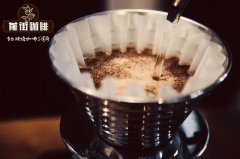Guatemala Coffee rating system is the higher the rating of Guatemalan coffee beans, the better?

Professional coffee knowledge exchange more coffee bean information please follow the coffee workshop (Wechat official account cafe_style)
Front Street-Guatemala Coffee grading
Anyone familiar with coffee knows that high-altitude raw beans perform much better in aroma persistence and taste complexity than low-altitude raw beans under the same roasting conditions. Therefore, in the coffee bean classification standard of each producing area, it is also a typical classification method according to the altitude. In the coffee-growing areas of Central America, most of the coffee is classified according to altitude.
In Guatemala, coffee beans grown above 1400 meters above sea level are called "SHB".
Classification according to the altitude of coffee producing area
This classification standard is mainly because the quality of coffee produced at high altitude is generally higher than that at low altitude, because high altitude and low temperature, slow coffee production is conducive to the accumulation of good substances. And the raw beans with high maturity have good expansibility when baking, which is beneficial to baking, and the quality is more stable.
At present, the coffee producers using this classification standard are Central and South American countries such as Guatemala, Mexico, Honduras, El Salvador and so on. Take Guatemala as an example
SHB (short for Strictly Hard Bean) very hard beans, grown above 1350m above sea level for the finest coffee
HB (HardBean) hard beans, planted at 1200m--1400m above sea level, and SH (Semi HardBean) slightly hard beans
EPW (Extra Prime Washed) extra high quality washed beans
PW (Prime Washed) high quality water washed beans, EGW (Extra Good Washed) special quality water washed beans
GW (Good Washed) good quality water washed beans, the planting elevations are about 1000m, 800m, 600m and 800m, respectively.
Knowledge: Guatemala is home to more than 300 microclimates, which can be called the largest in the world.
In short: Qianjie is a coffee research hall, happy to share the knowledge about coffee with you, we share unreservedly just to make more friends fall in love with coffee, and there will be three low-discount coffee activities every month. The reason is that Qianjie wants to make more friends drink the best coffee at the lowest price, which has been Qianjie's tenet for 6 years!
END
Important Notice :
前街咖啡 FrontStreet Coffee has moved to new addredd:
FrontStreet Coffee Address: 315,Donghua East Road,GuangZhou
Tel:020 38364473
- Prev

The story of Guatemalan coffee beans tells the story of the Mayan civilization with the disappearance of Guatemalan coffee history.
Professional Coffee knowledge Exchange more coffee bean information please follow Coffee Workshop (Wechat official account cafe_style) Front Street-Guatemalan Coffee History Guatemala Coffee History a cup of Guatemalan Antigua coffee seems to let us see the sudden disappearance of the mysterious Mayans thriving in ancient lands, history brushed their existence, history made their forever.
- Next

Is the kind of Guatemalan coffee beans Arabica? Guatemalan coffee is fresh and mellow.
Professional coffee knowledge exchange more coffee bean information please follow the coffee workshop (Wechat official account cafe_style) Front Street-Guatemala Coffee introduction Guatemala is bordered by Mexico to the north, Honduras and El Salvador to the south, the Caribbean to the east and the Pacific Ocean to the west, surrounded by mountains and seas, sitting on tropical rain forests, volcanic geology, plateau valleys and ever-changing microclimates.
Related
- Beginners will see the "Coffee pull flower" guide!
- What is the difference between ice blog purified milk and ordinary milk coffee?
- Why is the Philippines the largest producer of crops in Liberia?
- For coffee extraction, should the fine powder be retained?
- How does extracted espresso fill pressed powder? How much strength does it take to press the powder?
- How to make jasmine cold extract coffee? Is the jasmine + latte good?
- Will this little toy really make the coffee taste better? How does Lily Drip affect coffee extraction?
- Will the action of slapping the filter cup also affect coffee extraction?
- What's the difference between powder-to-water ratio and powder-to-liquid ratio?
- What is the Ethiopian local species? What does it have to do with Heirloom native species?

